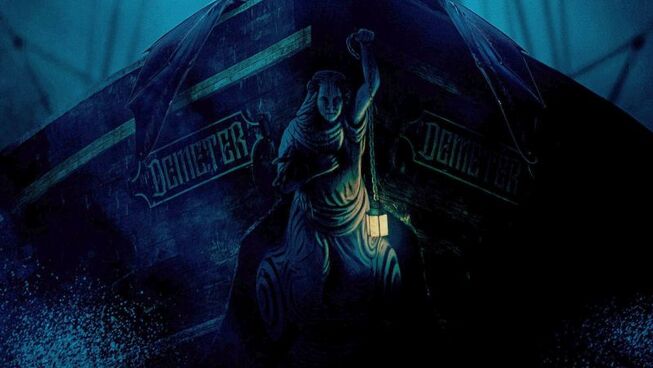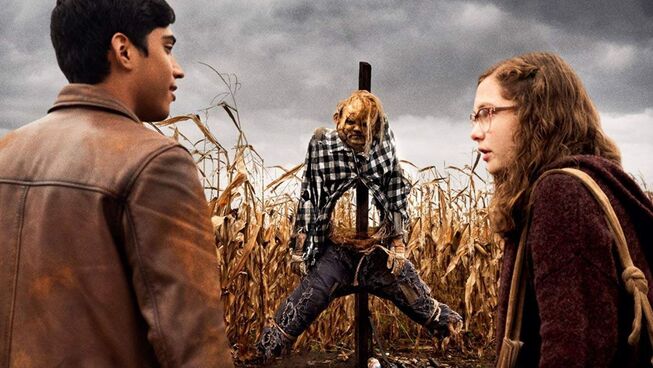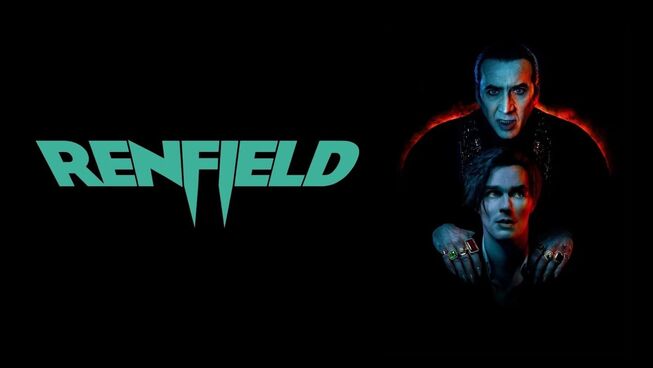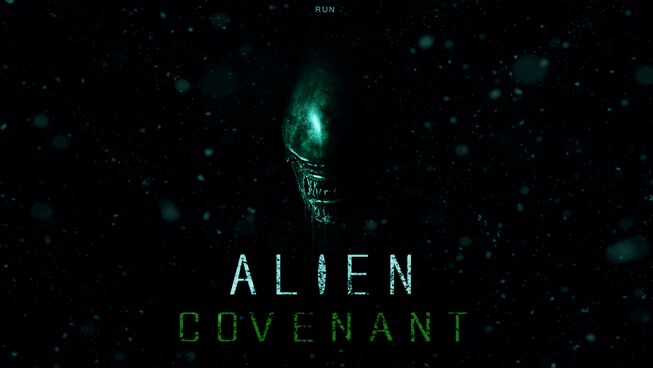
⭐️ ⭐️ ⭐️ (out of 5 )
The five-year wait is over for those hoping to see the rise of the grandfather of horror. Dracula marks his return to the big screen with Dracula: Last Voyage of the Demeter. Yet, will this seafaring adventure launch a new franchise for the legendary vampire, or will the sun rise on his legend once more and keep him lurking in the shadows of cinematic history?
Based upon a chapter of Bram Stoker's original novel Dracula (1897), this tale follows the fateful crew of the cargo ship as they set sail to the shores of London from Transylvania. Along the journey, they discover a terrifying evil that slowly stalks the crew throughout the nights on the open waters. The onboard doctor, Clemens (Corey Hawkins), attempts to make sense of the unexplainable incidents that affect the livestock and the crew. Once he realises that it is not a disease or animal causing the horrific attacks, he concludes that whatever or whoever is on board the ship is pure evil. With crew mates disappearing one by one each night, Captain Elliot (Liam Cunningham) enlists the doctor to investigate the mystery for the sake of the remaining crew. This revelation eventually leads to the men’s discovery of the beast within the ship’s hold, and they must destroy the creature before he eliminates each of them.
Ironically the film's journey to the big screen proved to be as challenging as the characters' voyage. The picture was stuck in development hell for two decades, changing directors and lead actors multiple times. Work on the script started as far back as 1992, and through various rewrites, recasts, and acquisitions, the film finally made its way to cinemas.
Director André Øvredal (Scary Stories You Tell in the Dark) describes this production as “Alien (1979) on a ship in 1897.” For those familiar with the sci-fi horror classic, the script follows that formula, with each attack scene being more predictable than the last. The scares are fast, aggressive, and cheap, delivering a loud jump for the viewer every time. Still, the film shines the brightest when it takes the time to slow down and draw out the tension. The screenplay does an excellent job of using these quiet and intimate moments to build up characters, establish stakes, and focus on Stoker’s terrifying mythological creature. Granted, there are scary moments that capture the imagination, outstanding production design, and the cast does deliver strong performances, especially from leads David Dastmalchian and Liam Cunningham.
Dracula: Last Voyage of the Demeter is a palpable take on the classic legend that will appeal to audience members who prefer a taste of the lighter side of the horror genre. This reimagining of the familiar tale does dive into some compelling ideas and concepts about good and evil. Still, for those thirsting for something more provocative and imaginative that will linger in your soul after you leave the theatre, this story doesn’t have the bite fans have come to expect from this genre.
Reel Dialogue: Making sense of the world
The film's protagonist, Clemens, is a scientist who wrestles with how there can be so much darkness in a world fighting for light. His queries are reminiscent of the biblical figure, King Solomon, who was searching for more profound answers in a lost and meaningless world.
In the Old Testament book of Ecclesiastes, readers can see Solomon searching for answers to the injustices and evils of this world. A significant consideration is why everything must always end in grief and pain. A query that reverberates through history into our lives today.
Interestingly, the Bible doesn’t leave humanity without an answer. God’s plan for mankind is not to live in a world of fear and suffering but to see this life's blessings. This introspective book begins with the reality that this life is meaningless, but thanks fully God doesn’t leave the reader there. The answer is found in the conclusion as he shares how God will bring every deed into judgment, including every hidden thing, whether good or evil.
For those like Clemons who yearn for salvation from the darkness around and within their lives, consider that God might be the answer. The Bible does answer these questions and more through the person of Jesus.

Reel Marriage
Lights, Camera... Movies and Marriage!
Marriage is one of life’s greatest blessings, yet it faces countless challenges in today’s world. How can we strengthen our commitment and help others see its value? The Bible offers wisdom, but what if movies could serve as a bridge to deeper conversations about love, faith, and commitment?
Reel Marriage explores how film and Scripture can illuminate the beauty of marriage, providing fresh insights into God’s design for love and relationships. From classic romances to modern dramas, movies capture couples' struggles and triumphs, mirroring biblical truths in powerful ways.
Faith and film unite. Are you ready to see marriage in a whole new light?
If you order your copy today you will also receive a complementary handbook that is only available with the purchase of the book (Print or ebook)






